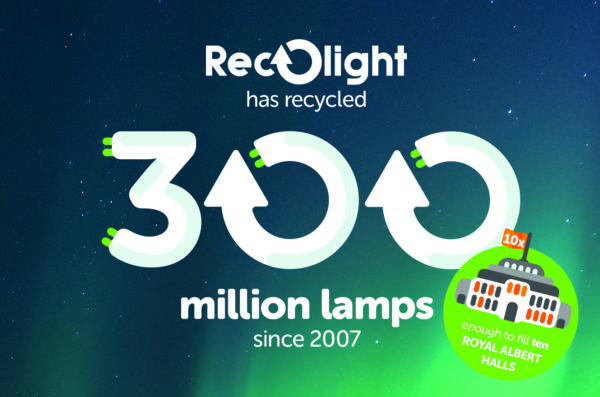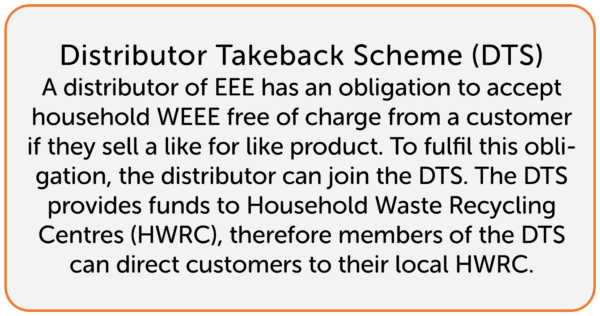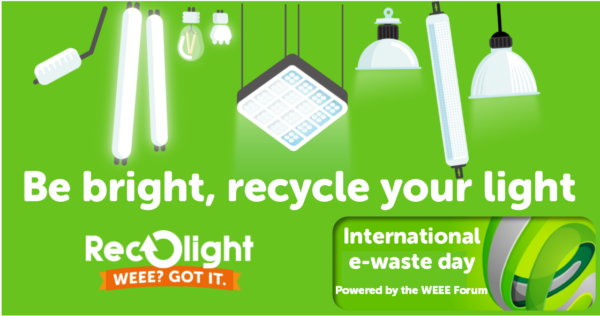Be bright, recycle your light
 Recolight recycle lamps, lots of them. Since 2007 we’ve funded the recycling of over 300 million. This is enough to fill over 10 Albert Halls.
Recolight recycle lamps, lots of them. Since 2007 we’ve funded the recycling of over 300 million. This is enough to fill over 10 Albert Halls.
We have managed to do this because we were set up as a not-for-profit WEEE Compliance Scheme by the lighting industry – to provide a free recycling service for their customers and end users.
The service we provide is predominantly for businesses, this is because our Lighting Producer Members generally sell their products to businesses. We do however, service over 300 recycling points for consumers. The map on our website shows where all consumer recycling locations.
Recycling for consumers
 Under the regulations, retailers are required to provide a free of charge WEEE collection service when they sell new electricals. But they can avoid this obligation by paying a small amount of money into the Distributor Take back Scheme (DTS).
Under the regulations, retailers are required to provide a free of charge WEEE collection service when they sell new electricals. But they can avoid this obligation by paying a small amount of money into the Distributor Take back Scheme (DTS).
The effect of the DTS is not great. It means consumers have less choice in how to recycle their WEEE. It is therefore hardly surprising that WEEE collections in the UK have largely stalled. A few commendable retailers do provide an in store collection service – but they are in the minority.
The DTS needs to be changed, or to be ditched; proposals are in place to do just this.
Campaign to raise awareness for recycling
More also needs to be been done to raise awareness about the need to recycle household light bulbs and other WEEE. Recolight are delighted that the WEEE compliance fee fund is being used to do just that. The fund will finance a large scale, three year nationwide campaign which is scheduled to start in early 2020. Given that light bulbs are so different from other WEEE, we think that a dedicated campaign for light bulbs may also be necessary.
Recolight supports International e-waste day
The WEEE Forum are promoting an International e-waste day on 14 October. It’s aim is to raise the public profile of electronic and electrical waste recycling . With an estimated 50 million tonnes of electrical waste being being generated globally in 2019, we need to encourage consumers to recycle more and prevent this harmful waste from going to land fill.


